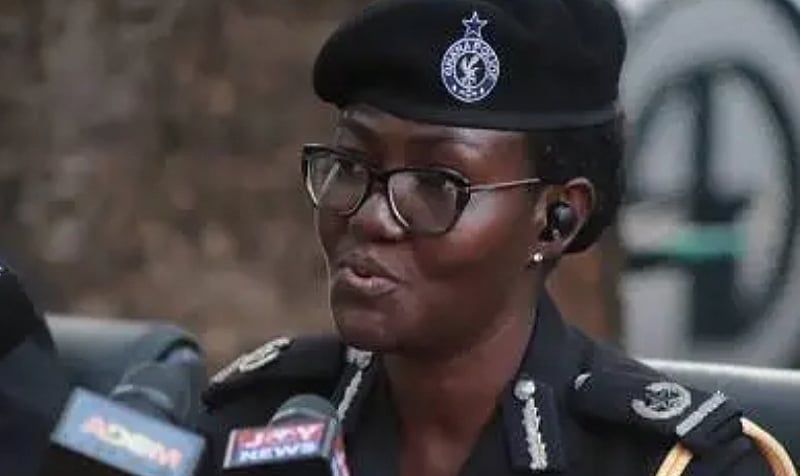The Ghana Police Service has recently faced allegations regarding the treatment of individuals arrested during the Democracy Hub demonstration, specifically claims that it coerced these protesters into re-enacting their protest at the 37 Intersection in Accra for camera documentation. On October 7, in a press release signed by Assistant Commissioner of Police Grace Ansah-Akrofi, the police force firmly rejected these allegations put forth by the legal representatives of the protesters. The police characterized the re-enactment as a “crime scene reconstruction,” an established investigative procedure in policing that they argue is both standard practice and compliant with international law enforcement norms. They asserted that this method has been a long-standing part of their investigative toolkit.
The incident in question occurred during the Democracy Hub, a protest against illegal small-scale mining activities, commonly referred to as “galamsey.” The protest led to multiple arrests under the premise of unlawful assembly. In their defense, the police pointed out that the officers who conducted the crime scene reconstruction were not strangers to the case; they had been involved in the investigation from the outset. This fact directly contradicts claims by the defense that the accused protesters did not recognize the police officers orchestrating the re-enactment. The police sought to clarify that the individuals who participated in the reconstruction were indeed familiar faces linked to the ongoing investigation.
Furthermore, the police emphasized that all detained individuals had been informed of their right to legal representation during the reconstruction process. Although some accused chose to engage without their lawyers present, others opted to have legal counsel accompany them. The police highlighted that all procedures related to the crime scene reconstruction adhered to established protocols, underscoring that no threats or coercion were employed to compel participation from the protesters.
In addressing allegations of wrongdoing, the Ghana Police Service expressed concern over what they perceive as an organized attempt to damage their reputation. They claimed that misinformation has proliferated through various channels, including sensational accounts involving a 12-year-old child and a pregnant woman. ACP Ansah-Akrofi articulated her dismay at these perceived attempts to undermine public trust in law enforcement, indicating a concerted effort to paint the police in a negative light amid the ongoing investigations.
The discourse surrounding the police’s actions raises critical questions about the boundaries of lawful protest and the responsibilities of law enforcement agencies, especially in politically charged environments. These incidents spotlight the tension that often exists in civil society when acts of dissent result in arrests and subsequent legal inquiries. The allegations laid against the police, whether valid or unfounded, contribute to the broader narrative about the state of democracy, human rights, and the rule of law in Ghana.
Ultimately, the Ghana Police Service remains firm in its assertion that all actions taken during the investigation, including the crime scene reconstruction, were legally sanctioned and procedurally sound. As this situation continues to unfold, it serves as a reminder of the fragile balance between maintaining order and upholding the rights of individuals within a democratic society. The outcomes of this case may have enduring implications not just for the involved individuals but also for the community’s view of police practices and the governance framework in which they operate.














